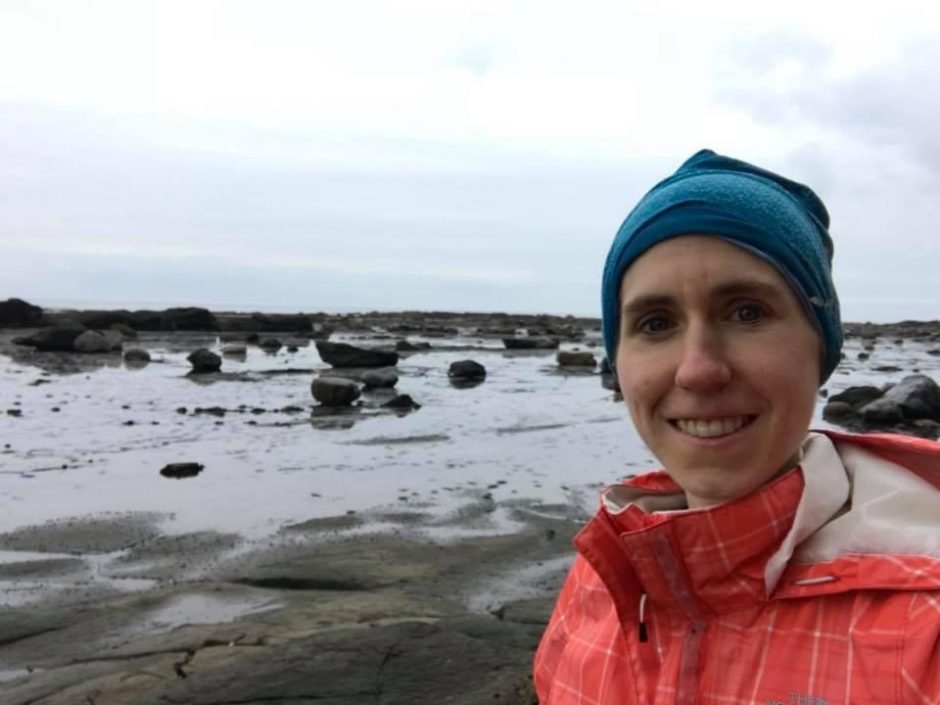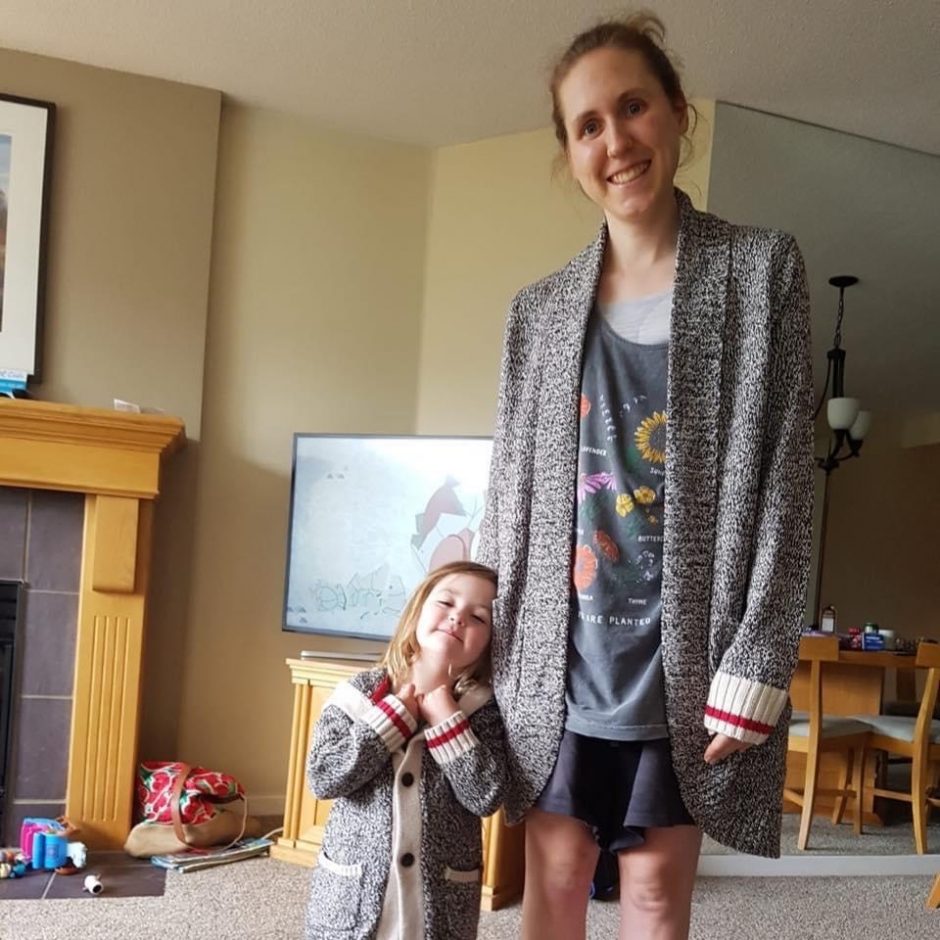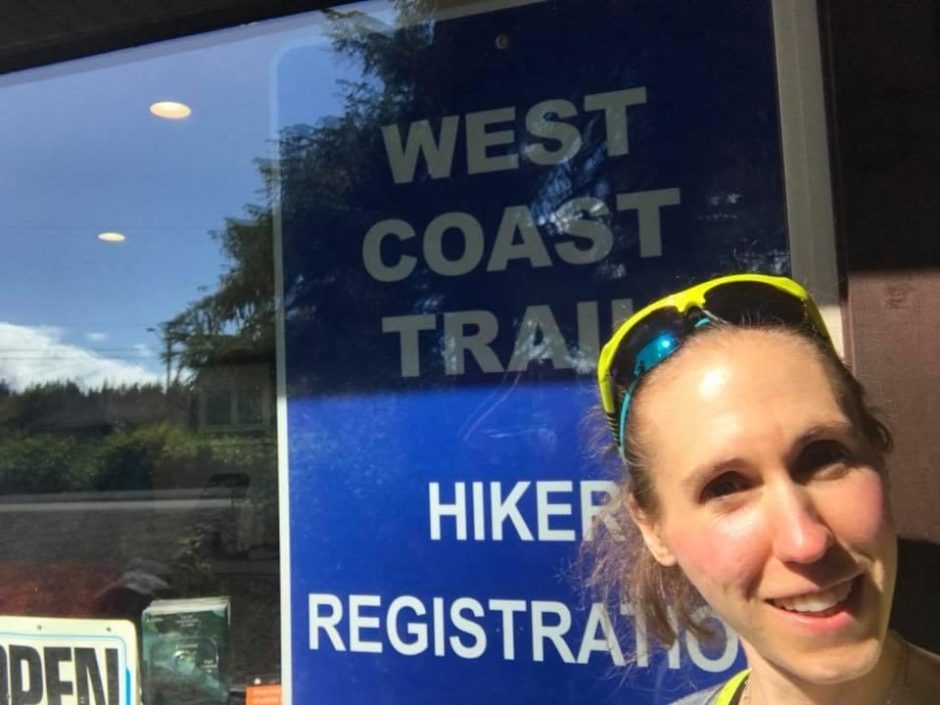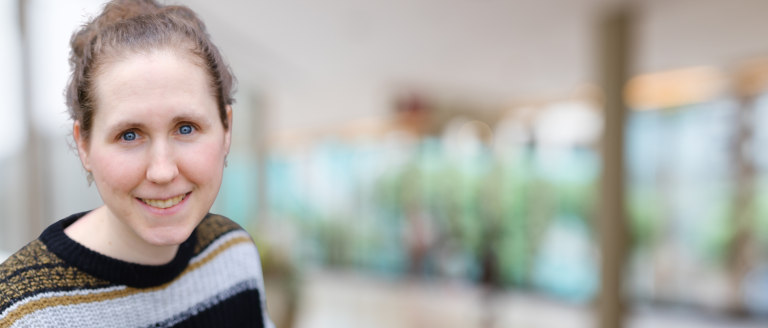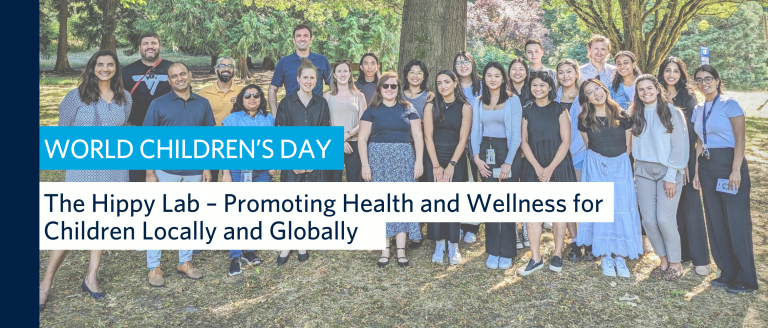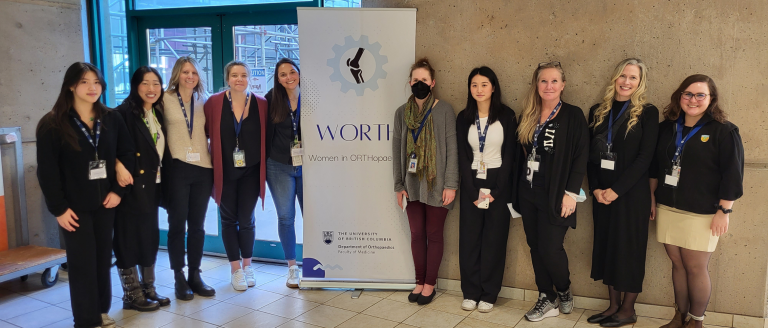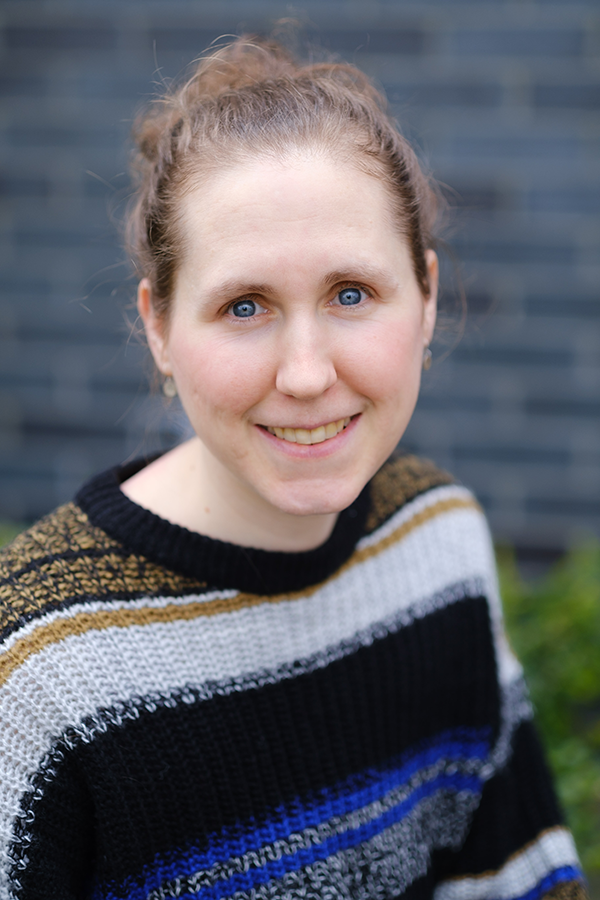
EMILY SCHAEFFER
Research Associate
Division:
Pediatric Orthopaedics
Site:
Vancouver – BC Children’s Hospital
Dr. Emily Schaeffer is a Research Associate with the UBC Department of Orthopaedics and Research Director for Pediatric Orthopaedics at BC Children’s Hospital. After seeing her grandfather struggle with Parkinson’s disease, she decided in high school to pursue research so that she could actively contribute to finding new solutions for medical problems. Today, her research focuses on pediatric orthopaedic hip conditions and musculoskeletal trauma. She currently runs the Hippy Global Registry Program, which includes registries on developmental dysplasia of the hip (DDH) and slipped capital femoral epiphysis (SCFE).
Can you share a little bit about your educational background and journey, and how you got to where you are today?
I grew up on the North Shore and played every sport under the sun while going through school, with a main focus on soccer and running. A lover of science and math from an early age, I knew I wanted to pursue sciences of some kind, but wasn’t entirely certain what specific path to take. Inspired by witnessing my grandfather’s struggle with Parkinson’s disease, by early high school I had decided to pursue research because I wanted to actively contribute to finding new solutions for medical problems.
Fascinated by mechanistic details and driven by questions of “why?” and “how?”, I studied biochemistry at the University of British Columbia. I was fortunate enough to join the UBC Co-operative Education program, gaining work experience at the National Microbiology Laboratory in Winnipeg and the BC Cancer Genome Sciences Centre. While completing my undergraduate thesis, I realized I wanted to be involved in research that was closer to reaching patients. That desire brought me to pursue graduate studies in a translational research program: Experimental and Molecular Medicine at Dartmouth College. Upon completing my PhD, I was even more certain of my desire to continue to move more toward clinical research. While I loved my translational lab work, I wanted to be closer to seeing the research in action, improving outcomes for patients. That brought me back to Vancouver and a fortuitous meeting with Dr. Kishore Mulpuri. I joined his team as research manager in September 2014 and spent a year immersing myself in pediatric orthopaedic research. Decidedly passionate about the work, I transitioned my role into a postdoctoral fellowship in December 2015. Together, Kishore and I have our built our research program on pediatric orthopaedic hip conditions and musculoskeletal trauma. I currently run our Hippy Global Registry Program, which includes registries on developmental dysplasia of the hip (DDH) and slipped capital femoral epiphysis (SCFE). I have also taken on the role of Research Director for Pediatric Orthopaedics at BC Children’s Hospital.
What inspired you to work in orthopaedics, specifically Pediatric Research?
As a lifelong athlete, I’ve always had a particular interest in orthopaedics and its importance in maintaining and restoring healthy human movement. I’ve also always loved working with children, volunteering as a summer camp counselor in high school and coaching soccer for 4, 5 and 6-year-olds throughout high school and university. Combining my athletic background, scientific curiosity and love for research with pediatric orthopaedics seemed like a naturally perfect fit. Building a career that integrates my greatest passions has been infinitely rewarding.
What impact would you like to see your work have on patients, communities and society at large?
At an individual level, I hope that our work contributes to the betterment of patients’ lives by improving outcomes for those that require treatment, surgical or otherwise. Pediatric orthopaedic interventions have an opportunity to be so life-changing for children and their families, giving kids back their ability to lead pain-free, mobile, healthy and happy lives throughout childhoods and into adulthood. Our research is developed to better inform clinical practices, which should in turn lead to direct advancements in clinical care for our patients.
At a community and societal level, I hope our work can help bring awareness and education surrounding the importance of early diagnosis and intervention for childhood orthopaedic conditions like DDH, Perthes and SCFE. Combining research, education and advocacy will ultimately lead to advances in clinical care to improve outcomes for patients and families in an equitable, globally-relevant way.
What excites you most about your work? What are you most proud of?
So many things excite me about my work! With our local-to-global approach, our incredible team works tirelessly with dedication and passion to improve the lives of children and families not only here in BC, but also around the world. Because of that, the thing that excites me most is to be able to see that the work we do has a tangible impact on the quality of life of functional outcomes for children and their families on a global scale.
One thing I’m most proud of is the collaborative approach our team has taken to everything we have built. The field of orthopaedic work and research has traditionally been quite siloed. We’ve made a lot of effort to develop a global scope of collaborations, which has resulted in a number of global research registries, including the International Hip Dysplasia Registry (IHDR). There are now 36 centres from 11 countries across five continents that contribute data. This has really broken down boundaries and barriers and has helped develop guidelines for clinical care best practices for pediatric hip conditions. In fact, we recently completed development of a DDH care pathway for India in collaboration with seven national organizations there. We are now using that work as a model for care pathway development both locally and in other countries.
What is one piece of advice that you would give to current trainees?
Always remain curious, and remember we are never finished learning. The pursuit of knowledge is endless and fascinating; you are sure to never get bored. This is equally true whether you are a clinical trainee or a research trainee. Also, always have your eyes open to the myriad opportunities and paths that can be taken while remaining involved in the medical field. There are so many invaluable ways to contribute that may not be a traditional medical school path.
When you’re not working, where can we find you? When I’m not working, you can find this fitness fanatic running, biking, hiking or taking Orange Theory Fitness classes. I also like to sneak away to Victoria for some Aunty time with my two young nieces and pass along my love of reading and baking to them.
